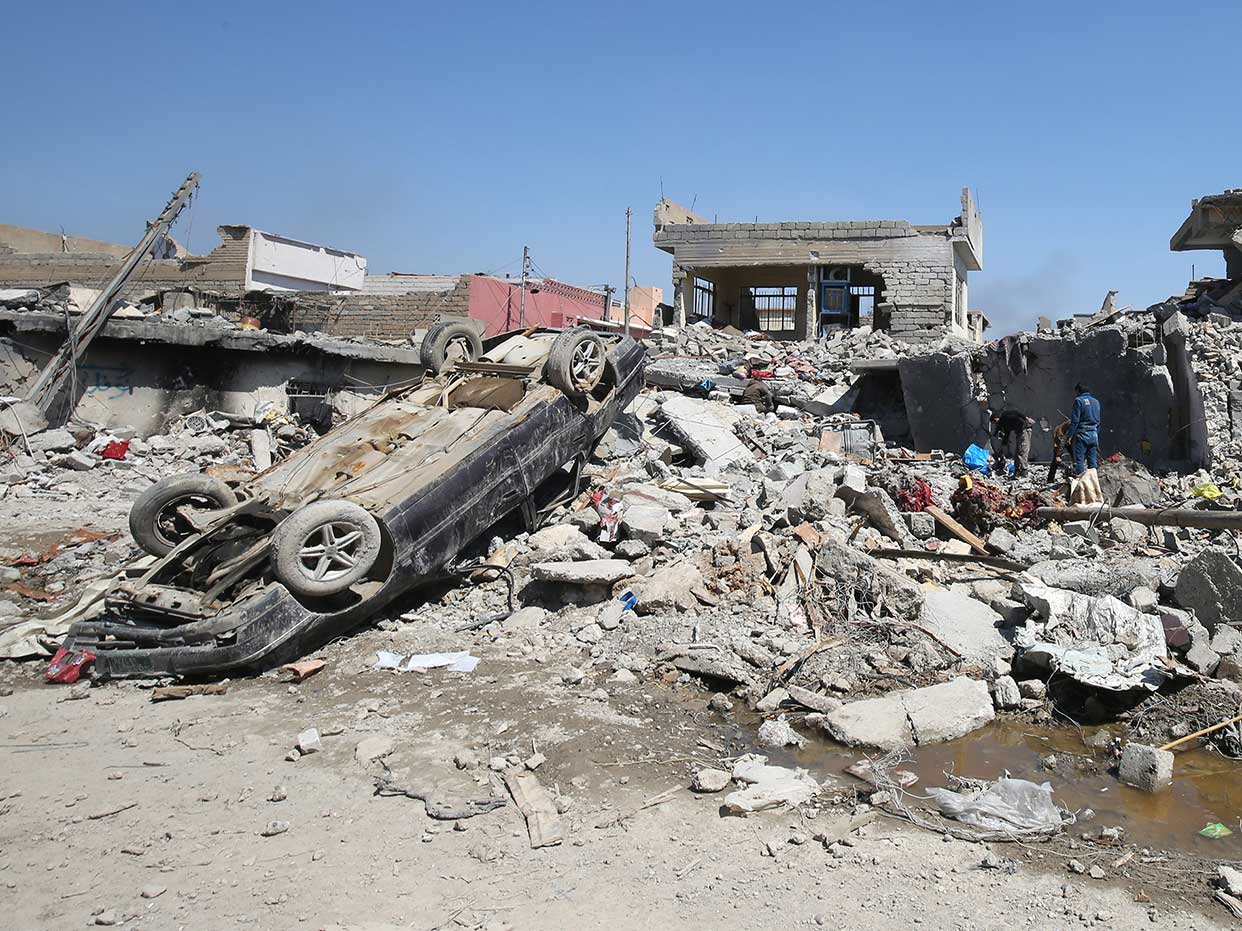More than 100 civilians killed in US air strike in Mosul
Pentagon reveals attack on IS snipers hit building filled with explosives

A free daily email with the biggest news stories of the day – and the best features from TheWeek.com
You are now subscribed
Your newsletter sign-up was successful
The Pentagon has admitted that an air strike targeting Islamic State snipers on the roof of a house in the Iraqi city of Mosul in March killed at least 105 civilians. A further 36 people are still unaccounted for.
"It appeared to be the single largest incident of civilian casualties involving the US-led coalition since it started operations against Islamic State in Syria and Iraq in 2014," Reuters says.
A US military investigation found the strike inadvertently triggered explosives placed in the building by IS fighters. The house was being used by a large number of civilians to shelter from intense fighting between the militants and Iraqi security forces.
The Week
Escape your echo chamber. Get the facts behind the news, plus analysis from multiple perspectives.

Sign up for The Week's Free Newsletters
From our morning news briefing to a weekly Good News Newsletter, get the best of The Week delivered directly to your inbox.
From our morning news briefing to a weekly Good News Newsletter, get the best of The Week delivered directly to your inbox.
"The civilians had gathered in the lower floors of the building after being expelled from their homes by IS fighters," the BBC says.
According to the investigation, US military had targeted two IS snipers with a "precision-guided munition" for the strike in order to "minimise collateral damage", but the IS explosives caused the entire structure to collapse.
US Central Command said those organising the strike "could not have predicted the presence of civilians in the structure prior to the engagement", added the BBC.
"Critics have said the 17 March airstrike demonstrated that the United States has been too quick to use air power in a congested city filled with hundreds of thousands of civilians," says the New York Times.
A free daily email with the biggest news stories of the day – and the best features from TheWeek.com
-
 Is Andrew’s arrest the end for the monarchy?
Is Andrew’s arrest the end for the monarchy?Today's Big Question The King has distanced the Royal Family from his disgraced brother but a ‘fit of revolutionary disgust’ could still wipe them out
-
 Quiz of The Week: 14 – 20 February
Quiz of The Week: 14 – 20 FebruaryQuiz Have you been paying attention to The Week’s news?
-
 The Week Unwrapped: Do the Freemasons have too much sway in the police force?
The Week Unwrapped: Do the Freemasons have too much sway in the police force?Podcast Plus, what does the growing popularity of prediction markets mean for the future? And why are UK film and TV workers struggling?
-
 Epstein files topple law CEO, roil UK government
Epstein files topple law CEO, roil UK governmentSpeed Read Peter Mandelson, Britain’s former ambassador to the US, is caught up in the scandal
-
 Iran and US prepare to meet after skirmishes
Iran and US prepare to meet after skirmishesSpeed Read The incident comes amid heightened tensions in the Middle East
-
 Israel retrieves final hostage’s body from Gaza
Israel retrieves final hostage’s body from GazaSpeed Read The 24-year-old police officer was killed during the initial Hamas attack
-
 China’s Xi targets top general in growing purge
China’s Xi targets top general in growing purgeSpeed Read Zhang Youxia is being investigated over ‘grave violations’ of the law
-
 Panama and Canada are negotiating over a crucial copper mine
Panama and Canada are negotiating over a crucial copper mineIn the Spotlight Panama is set to make a final decision on the mine this summer
-
 Why Greenland’s natural resources are nearly impossible to mine
Why Greenland’s natural resources are nearly impossible to mineThe Explainer The country’s natural landscape makes the task extremely difficult
-
 Iran cuts internet as protests escalate
Iran cuts internet as protests escalateSpeed Reada Government buildings across the country have been set on fire
-
 US nabs ‘shadow’ tanker claimed by Russia
US nabs ‘shadow’ tanker claimed by RussiaSpeed Read The ship was one of two vessels seized by the US military